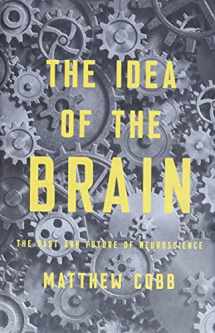
The Idea of the Brain: The Past and Future of Neuroscience
Book details
Summary
Description
An "elegant", "engrossing" (Carol Tavris, Wall Street Journal) examination of what we think we know about the brain and why -- despite technological advances -- the workings of our most essential organ remain a mystery. "I cannot recommend this book strongly enough."--Henry Marsh, author of Do No Harm
Shortlisted for the 2020 Baillie-Gifford Prize
For thousands of years, thinkers and scientists have tried to understand what the brain does. Yet, despite the astonishing discoveries of science, we still have only the vaguest idea of how the brain works. In The Idea of the Brain, scientist and historian Matthew Cobb traces how our conception of the brain has evolved over the centuries. Although it might seem to be a story of ever-increasing knowledge of biology, Cobb shows how our ideas about the brain have been shaped by each era's most significant technologies. Today we might think the brain is like a supercomputer. In the past, it has been compared to a telegraph, a telephone exchange, or some kind of hydraulic system. What will we think the brain is like tomorrow, when new technology arises? The result is an essential read for anyone interested in the complex processes that drive science and the forces that have shaped our marvelous brains.


We would LOVE it if you could help us and other readers by reviewing the book
Book review



